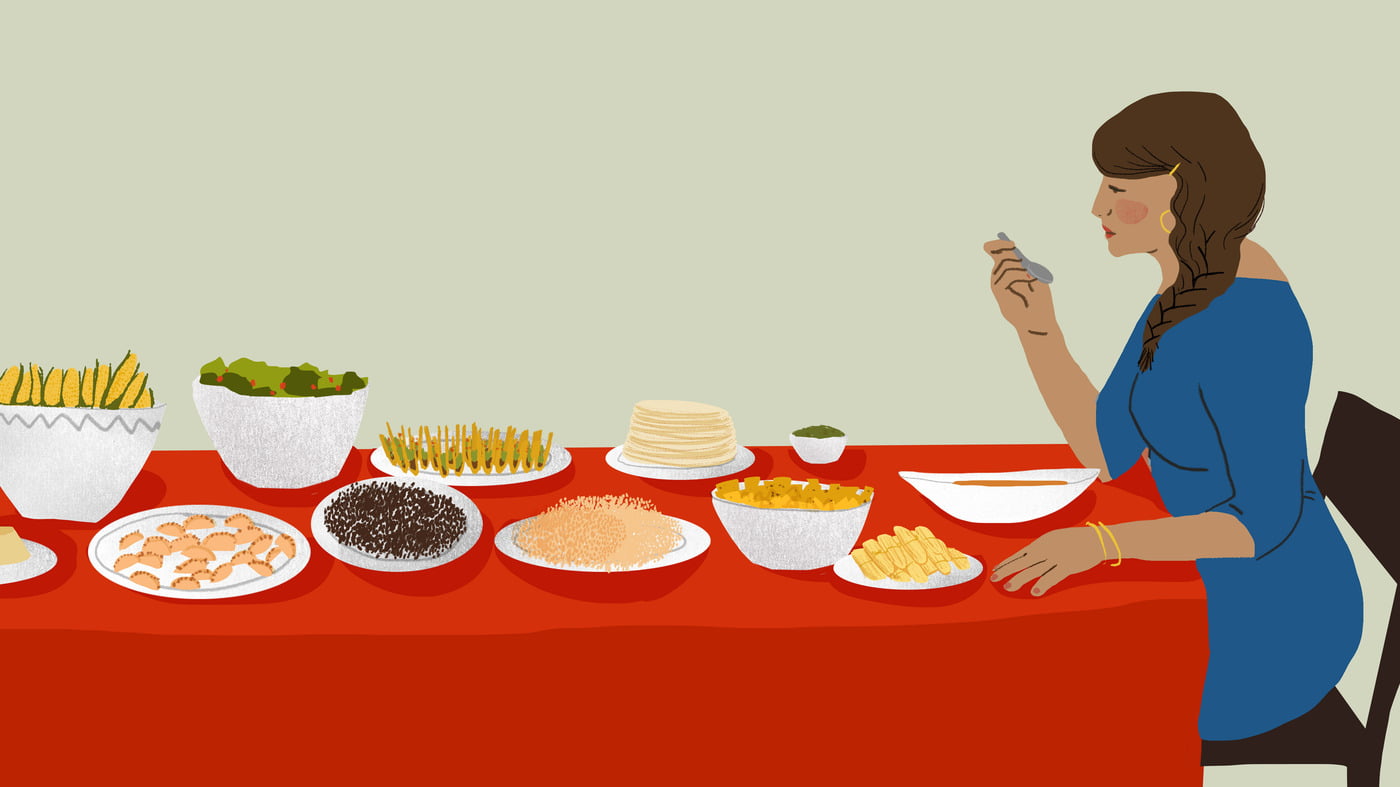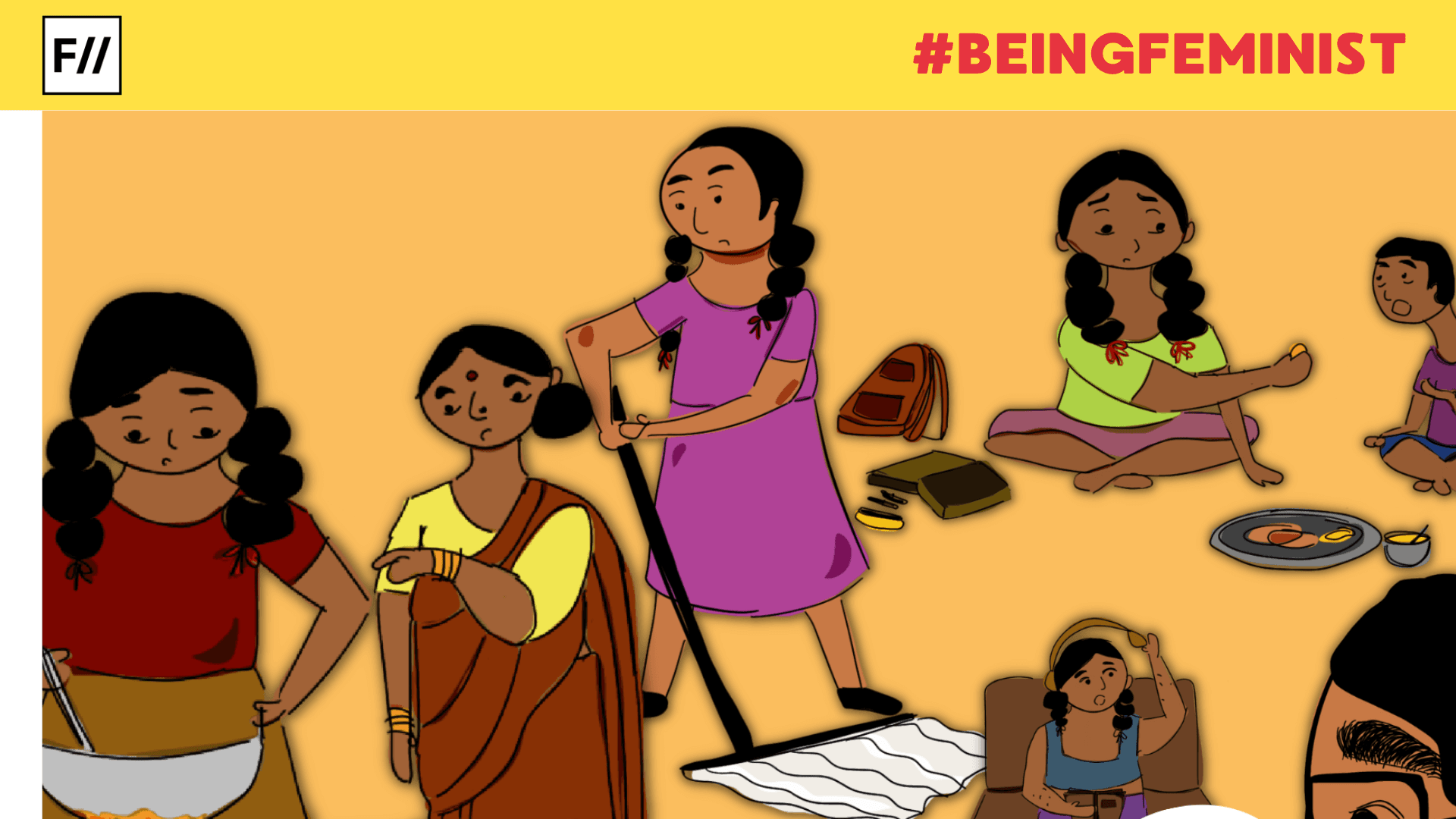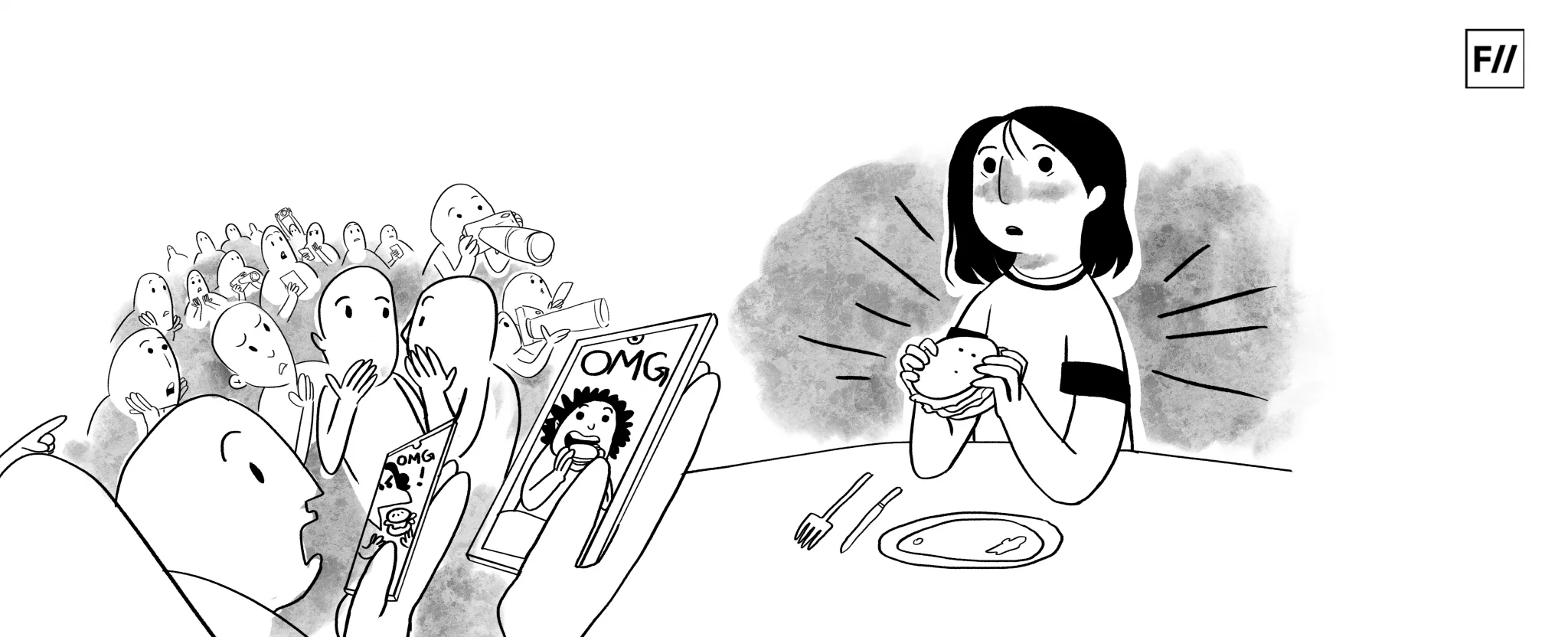The debate over food choices in India regarding being vegetarian or non-vegetarian is not a contemporary phenomenon but has been continuing since the ages. The subject of food choices in Indian society cannot be merely considered individual preferences but is associated with caste and class hierarchy, religious identity, ethnicity, etc. The conflict between vegetarians and non-vegetarians has been experienced in society on various occasions, where people have engaged in discussion to distinguish between “pure” and “impure” food and “superior” and “inferior” food. Such conflicts have been frequently reported at places, where people of different caste, class, religious and ethnic identities cohabitate, including educational institutions, public spaces and transports, restaurant, hotels etc.
Discrimination based on food choices in India
A recent incident of food-based segregation happened at the Indian Institute of Technology, Bombay (IIT-B) dining hall, where a group of students puts up a poster on the wall saying, ‘vegetarian only are allowed to sit here.‘ This is not the first instance of food-based discrimination on the IIT Bombay campus. In January 2018, the mess team sent an email asking the non-vegetarians to use the tray plates instead of the main dishes. Such food-based controversies are not only constrained to IIT Bombay but are reported in many other universities and colleges, where non-vegetarian foods were either discontinued from the menu or the mess kitchens were advised to not serve them on certain occasions.
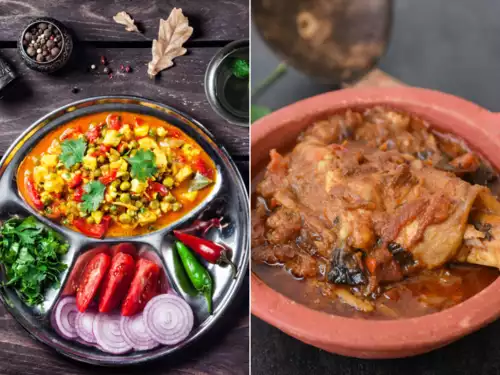
Similarly, the controversies regarding the serving of veg and non-veg foods in the railways, restaurants, and hotels have also been reported widely in recent years, where customers objected over serving the food for various reasons.
Sudha Murthy, the chairperson of the Infosys foundation and a renowned author, revealed her food preferences and concerns regarding it in a recent interview. There were mixed reactions on social media to her statement; some supported her food choice, and others called her out for celebrating ‘extreme vegetarianism‘.
Sudha Murthy, the chairperson of the Infosys foundation and a renowned author, revealed her food preferences and concerns regarding it in a recent interview. There were mixed reactions on social media to her statement; some supported her food choice, and others called her out for celebrating ‘extreme vegetarianism‘.
Busting the myths of vegetarian superiority
This discussion is not about who is right and who is wrong or which food is superior and which food is inferior. We should be certain that the matter of food preference is totally about personal choice. It is the individual’s right to choose which food they want to consume and which they do not want to consume. Primarily, this discussion will try to understand the food choices of individuals in Indian society and their interaction with others.
Some vegetarian individuals in society mainly try to prove their way of life, food habits, clothing style etc to be superior as compared to others. Furthermore, vegetarians in Indian society have historically claimed themselves to be superior to those who consume meat. They were considered sacred, belonging to the priestly class, and proclaimed themselves worthy to be worshipped by the masses.
Hierarchies within the vegetarian community based on food choices
Within the vegetarian social group, there is a hierarchy based on the food items they consume. A large section of people in India gets to only consume a few food items, which is not enough to fulfill their nutritious requirements. On the other hand, there are many vegetarian people in the country who get enough healthy food to meet their energy intake. In India, millet is still considered the food of people experiencing poverty. Therefore, a class hierarchy of food consumption among the vegetarian groups is still found in terms of food intake, types of cereals, etc.

Similarly, the sense of superiority and inferiority complex is very prevalent among the non-vegetarian groups as well. Recent incidents prove that those who consume fish, chicken, and mutton consider themselves superior to those who eat pork. Furthermore, those who consume buffalo meat in India are looked down upon in society by vegetarian and non-vegetarian groups alike.
Caste and food choices
The relationship between caste and food preferences in Indian society is not as simple as it looks. There is a popular belief among people that the upper castes primarily consume vegetarian food, and others are non-vegetarians. It is believed in society that the upper castes consume pure food, and lower caste foods are treated as impure and unhygienic. The moment we go into the country’s regional diversity, we find a stark contradiction in the claims which label Brahmins as vegetarians and other castes as non-vegetarians. In any society, food habits, clothing styles, living conditions etc. are determined mainly by regional, climatic and other geographical factors. Therefore, if we want to understand the caste-based dietary preferences in Indian society, we should primarily focus on the regional aspects by conducting a micro-level study.
In most parts of the country, there are many upper-caste groups who consume non-vegetarian foods in their everyday meals. The individuals from the Brahmin castes consume non-vegetarian foods in many parts of the country as their main dish. On the contrary, many oppressed castes in the country do not consume meat and have remained pure vegetarian for generations. These castes mainly do animal husbandry work as part of their caste occupation, and they find themselves close to animals and nature.
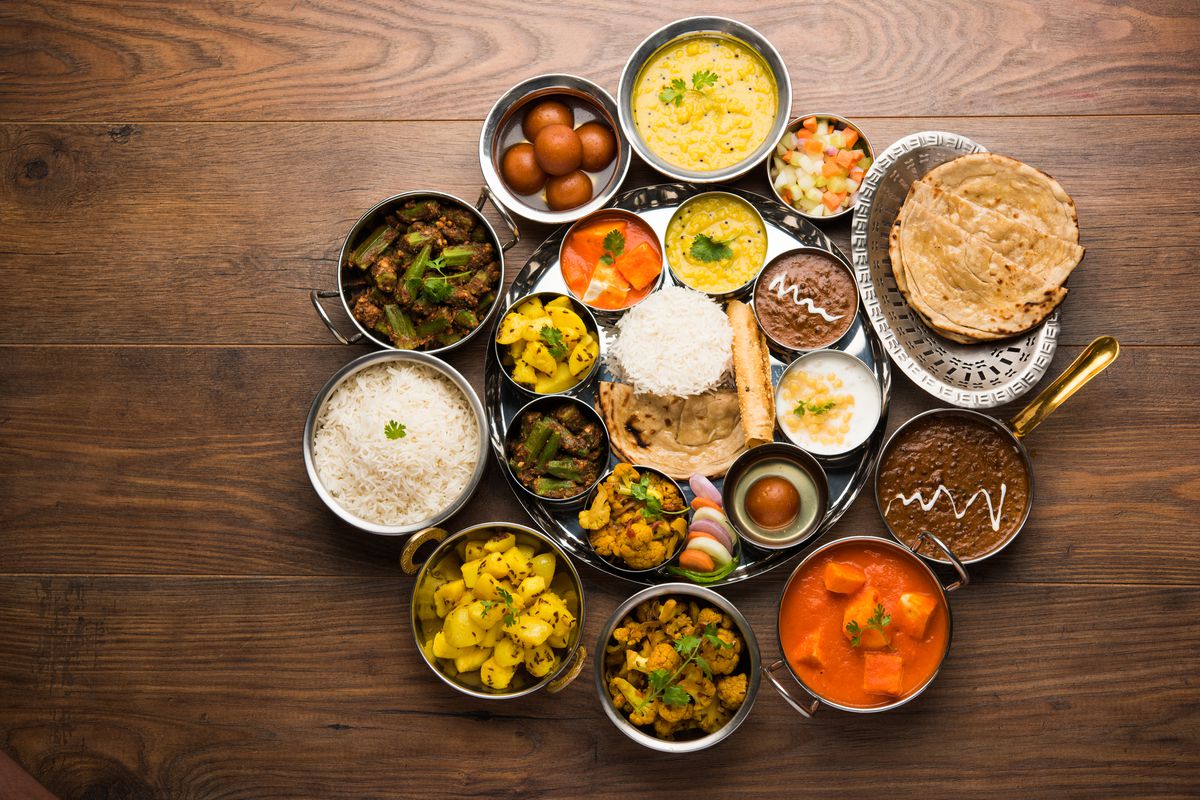
The dietary practices of the Dalit community in the country have always been treated as impure, polluted, and unhygienic by the dominant forces of the society, where they were stigmatised for eating remnant food, pork, beef, and other meat. Due to their food practices, Dalits are discriminated against and face violence, exclusion, and stigmatisation in society. The dietary practices of Dalit communities are shaped by various aspects, including social, cultural, economic, regional, and historical factors. There are many parts of the country where Dalits eat rats, pork, and beef, and due to this, they have faced violence, discrimination, and exclusion from others who claim themselves to be superior.
The dietary practices of Dalit communities are shaped by various aspects, including social, cultural, economic, regional, and historical factors. There are many parts of the country where Dalits eat rats, pork, and beef, and due to this, they have faced violence, discrimination, and exclusion from others who claim themselves to be superior.
Changing food choices and its implications
In this age of modernity, the traditional vegetarian castes, communities, and individuals have begun to include non-vegetarian foods in their dietary practices. The youth have now focused on getting more healthy, energetic, and diverse food experiences, and such expectations now obscure the barriers of superior and inferior, and pure and impure food. In restaurants, cafes, and other such places, there can be found numerous non-vegetarian cuisines cooked in different styles with different tastes and flavors. The youths from traditional vegetarian families have also shifted to non-vegetarian foods to get more protein, variety in food choices, etc.
Therefore, on the one hand, the distinction between vegetarian and non-vegetarian foods is fading. On the other hand, food-based segregation has also been reported in the country, where vegetarians often ask for separate places to sit and utensils to serve veg and non-veg foods. The recent incidents are but the continuing effects of linking at food choices to ethical and moral superiority.
